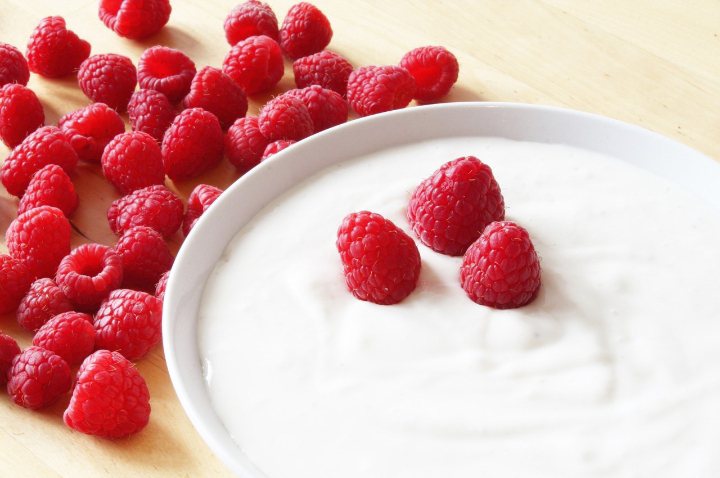Why Your Kid is Always Tired?: Are Kids Having Enough Protein in Food?
Why Your Kid is Always Tired?
The usual morning scene in every neighbourhood is almost similar: the school bus plying at the society gates and the kids of all sizes and ages eagerly and diligently stepping towards it, climbing the steps, gleefully giggling, and cheerfully talking like birds chirping. Their day starts with waking up early and going to school, with lessons, games, and activities all day. But at the end of the day, their tired little bodies and drooping pale faces sadden and melt your heart. Parents often think, why is their kid so tired at the end of the day? Why are they always so weak and fatigued at the end of the day?
Reasons for fatigue in kids
The reasons why a kid is often tired after a long day at school can vary, depending on various circumstances:
Lack of sleep in some kids can be the reason for day-to-day tiredness, as they need more sleep than adults. If they are not getting the recommended amount of sleep, they will feel sluggish during the day. The required sleep can vary by age, but school-age children typically need around 9-11 hours per night. Spending a lot of time on screens (TV, tablets, phones, etc.) can interfere with a child’s sleep patterns and contribute to fatigue. The blue light emitted by screens can suppress melatonin production, making it harder for them to sleep at night.
Poor nutrition can also be one of the reasons for tiredness in kids. Kids who aren’t eating balanced meals or who rely too heavily on sugary or processed foods can experience energy crashes. A lack of essential nutrients like iron, protein, and healthy fats can also contribute to feelings of fatigue. Sometimes kids feel tired simply because they're not drinking enough water. Dehydration can also make them sluggish and affect their ability to concentrate.
Physical activity helps regulate sleep patterns and boosts energy levels. Kids who don't get enough exercise may feel lethargic. On the other hand, some kids who overexert themselves may also feel tired if their bodies don’t have enough time to recover.
Understanding Protein and Its Role in the Body
The fatigue factor is due to poor nutrition or protein deficiency in most kids. and protein can play a key role in balancing your child’s energy levels. Protein is an essential nutrient for energy, especially for active kids who are growing fast. Lack of protein can definitely contribute to fatigue in kids. If kids aren't getting enough protein, they may feel sluggish and tired, and the reasons can be:
Energy levels: Protein helps stabilize blood sugar levels and provides more energy than any sugary snack, which kids look for when they are hungry. When a child’s diet lacks protein, they might experience energy crashes more often, leading to tiredness.
Muscle function: Protein is necessary for muscle repair and growth. A deficiency can affect muscle strength and stamina, making a child feel more physically fatigued. Protein is a key building block of muscles. As kids grow, their muscles need to develop and grow, which requires protein to help build new muscle fibres. Physical activity, like running, playing sports, or even everyday activities, causes tiny tears in muscle fibres. Protein helps repair and rebuild these fibres, making muscles stronger and more resilient.
Immune system: Protein is also vital for immune function. Proteins are essential for producing antibodies, which are specialized proteins that help identify and neutralize harmful pathogens, such as viruses and bacteria. Protein is required to produce white blood cells, which are the immune system's first line of defence, they detect and destroy pathogens. A lack of protein can weaken the immune system, causing frequent illness, which can leave kids feeling more tired than usual.
Growth and development: Protein plays a big role in growth and overall development in children. Whether it is muscle, bone, brain development, hair, skin, nails or the overall development of your kid, protein is required in adequate measure without enough protein, growth may be stunted, and they might not have the energy they need for daily activities.
It's important to ensure that kids get a balanced diet with adequate amounts of fruits and vegetables, whole grains, protein, healthy fats, and dairy. Protein can come from sources like meat, poultry, fish, eggs, dairy, beans, tofu, lentils, nuts, and seeds.
Symptoms of Protein Deficiency in Kids
Identifying protein deficiency in children can sometimes be tricky because the symptoms can be subtle or overlap with other health issues. Here are some signs that protein could be lacking in your child's diet:
Fatigue and lethargy, Children who don’t get enough protein may experience fatigue or a lack of energy. Protein helps provide long-lasting energy, and without enough in the diet, kids may feel sluggish, irritable, or unusually tired. Poor concentration or focus in school, Slower recovery from illness or injury.
Frequent Infections, Protein is vital for a healthy immune system, as it helps produce antibodies and white blood cells. If your child gets sick often, experiences frequent colds, or has trouble recovering from illness, it could be a sign of weakened immunity due to insufficient protein.
Frequent hunger or overeating, If your child is not getting enough protein, they may feel hungry more often or have cravings for sugary snacks, which can lead to energy crashes.
Low energy or sluggishness: Protein helps sustain energy levels throughout the day. If the kids do not have a balanced diet or are without protein food, they may feel worn out or low-energy.
Slow or Stunted Growth, If your child isn't growing at the expected rate (both in height and weight), it could be a sign that they're not getting enough protein to support normal development. Protein is essential for building muscles and tissues, and a deficiency can result in slower physical growth.
Mood changes: Protein is involved in neurotransmitter production, which affects mood and cognitive function. A lack of protein can sometimes lead to irritability or difficulty concentrating.
Weak muscles and decreased physical endurance are some of the symptoms of protein deficiency, emphasizing tiredness and fatigue.
Why Are Kids Not Getting Enough Protein?
Picky eating habits: Many children go through phases of being picky eaters, where they may refuse certain types of protein-rich foods like meat, fish, eggs, or legumes.
Poor Diet Choices: Kids might choose processed or sugary foods over nutrient-dense options, which can lead to a lack of essential nutrients like protein. Fast food and snacks may fill them up but don't provide enough protein.
Unawareness: some parents might not know the importance of protein or how to incorporate it into meals. This can lead to undernutrition.
Limited plant-based or animal protein in some diets. Kids who follow a vegetarian or vegan diet may struggle to get enough protein if they're not eating a variety of plant-based sources like beans, lentils, tofu, nuts, and seeds. Without careful planning, their diets may lack sufficient amounts of protein.
Ways to Increase Protein in Kids’ Diet
While paying attention to signs of protein deficiency consult with a pediatrician or nutritionist for proper guidance for your kid’s overall development.
Plant-based options like beans, lentils, tofu, and quinoa are good, but certain food items make kid’s daily meals protein-packed and enjoyable at the same time. These foods can be:
Yogurt is a rich source of protein and calcium with fruits in it.
Cheese in the form of cheese slices, cheese sticks, cottage cheese, or cheese cubes as a snack.
Peanut butter, which is packed with protein, is essential for muscle growth, tissue repair, and overall development. A couple of tablespoons can provide a significant protein boost, especially important for growing kids.
Nuts and seeds as healthy snacks can be offered, A mix of nuts, like almonds and walnuts, and seeds like sunflower, chia, or pumpkin seeds can be eaten as a snack or included in smoothies, salads, or cereal.
Eggs are an easy way to make a protein-rich snack. Keep a batch of hard-boiled eggs in the fridge for an easy grab-and-go protein snack. Scrambled, fried, boiled, or in omelettes, eggs are an affordable and versatile source of protein.
Add beans & lentils into soups, stews, salads, and pasta dishes. These plant-based proteins are also great for vegetarian diets.
Milk, especially cow's milk or fortified plant-based milk like soy or oat milk, contains more protein than other plant-based options.
Protein powder, especially for kids, can be made at home and can be added to milk, oatmeal, desserts, and smoothies. Blend together half a cup each of walnuts, almonds, pumpkin seeds, chia seeds, dry rolled oats, and coconut powder. For extra taste, add non-fat milk powder and vanilla extract/cocoa powder, your homemade protein powder for kids is ready to be added to their milk and other dishes.
Besides awareness of a protein-rich diet for growing kids, please remember not to overdo it; a balanced diet is key to proper nutrition.















Comments